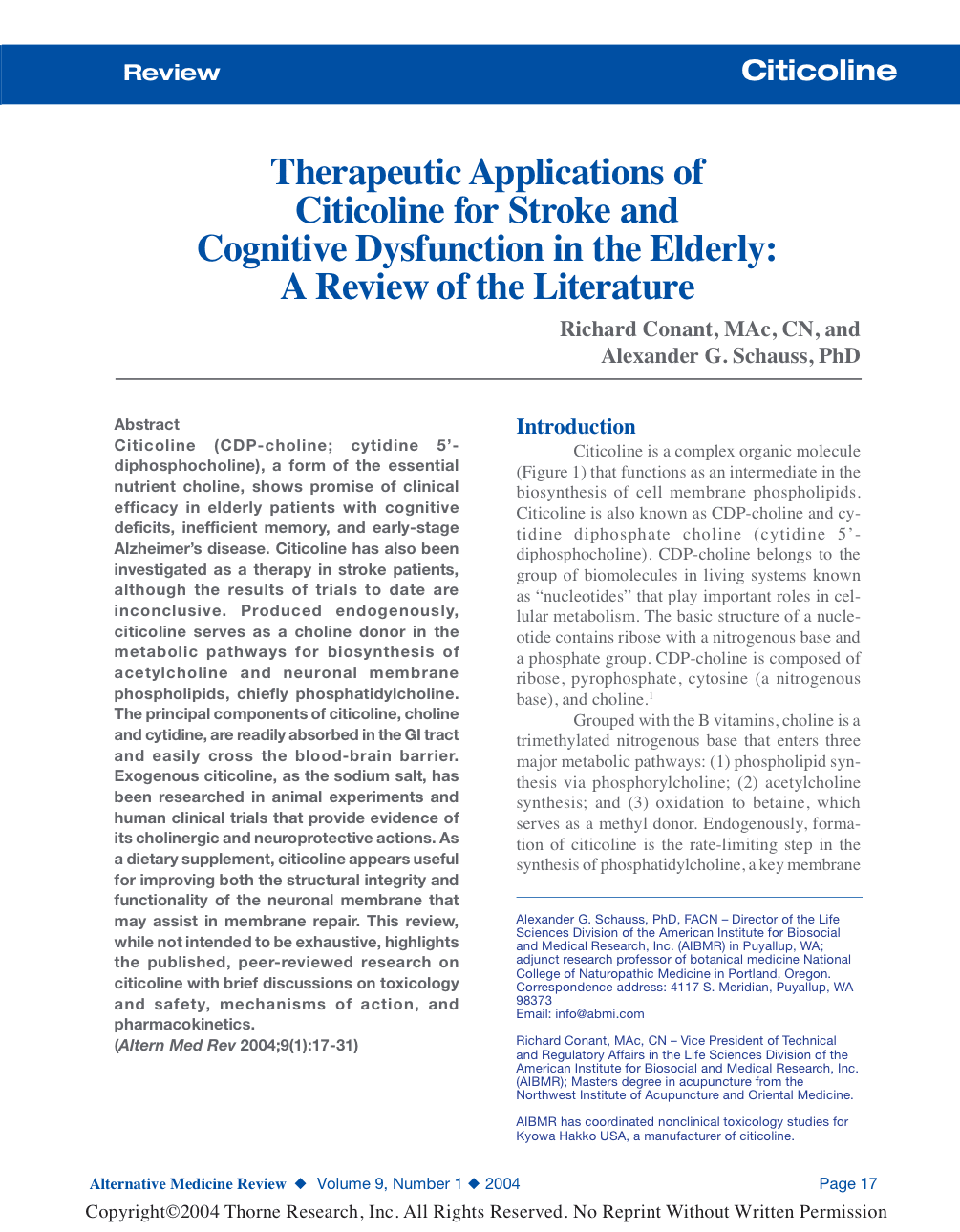Abstract
Citicoline (CDP-choline; cytidine 5’-diphosphocholine), a form of the essential nutrient choline, shows promise of clinical efficacy in elderly patients with cognitive deficits, inefficient memory, and early-stage Alzheimer’s disease. Citicoline has also been investigated as a therapy in stroke patients, although the results of trials to date are inconclusive. Produced endogenously, citicoline serves as a choline donor in the metabolic pathways for biosynthesis of acetylcholine and neuronal membrane phospholipids, chiefly phosphatidylcholine. The principal components of citicoline, choline and cytidine, are readily absorbed in the GI tract and easily cross the blood-brain barrier. Exogenous citicoline, as the sodium salt, has been researched in animal experiments and human clinical trials that provide evidence of its cholinergic and neuroprotective actions. As a dietary supplement, citicoline appears useful for improving both the structural integrity and functionality of the neuronal membrane that may assist in membrane repair. This review, while not intended to be exhaustive, highlights the published, peer-reviewed research on citicoline with brief discussions on toxicology and safety, mechanisms of action, and pharmacokinetics. (Altern Med Rev 2004;9(1):17-31)

